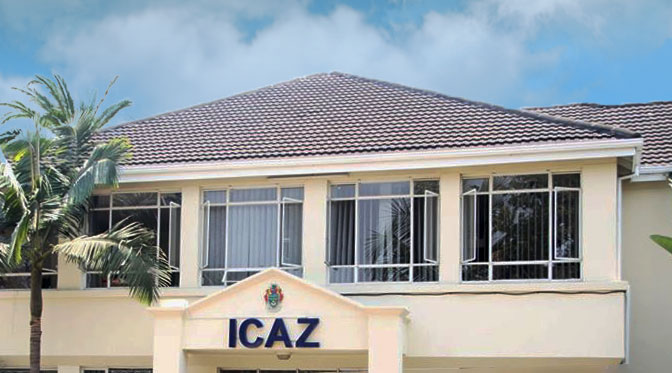Mthuli’s 2023 budget balloons five-fold
Zimbabwe will spend five times more than what it previously budgeted for this year, according to figures in the 2024 Budget Strategy paper published recently with analysts attributing this to galloping inflation, massive local currency depreciation among other factors.
Following runaway inflation during the larger part of the first half of the year, Finance and Economic Development Minister, Prof Mthuli Ncube, now expects to spend about $25,6 trillion, up from the $4,5 trillion he had initially budgeted.
Runaway inflation and massive currency depreciation have meant Government will likely collect and spend more than budgeted in nominal terms.
In U.S. dollar terms, the budget is more or less the same but has drastically swelled in Zimbabwe dollars terms after the exchange rate increased more than five-fold since December 2022.
The extra budget has not been authorised by the Parliament, in line with the law and Minister Mthuli will need to seek permission, also known as condonation, within 60 days after the extent of unauthorised expenditure has been established.
Zimbabwe’s Parliament was dissolved by midnight of August 22, to pave the way for a national harmonised plebiscite. The new legislators for the 10th Parliament were sworn in yesterday.
Every year, the Finance Minister proposes a national budget before Parliament detailing projected revenues, expenditures and allocations.
The budget has to be approved by the Parliament. But if the money falls short, he goes back to the Parliament with a supplementary budget, which also requires approval from the legislators.
This year, Minister Mthuli released an eight-page Mid-Term Review Statement but did not propose a supplementary budget.
He neither presented it before the Parliament.
“The minister should have proposed a supplementary budget before the Parliament because it was dissolved on the eve of elections while the Mid Term Policy Statement was announced earlier before that,” Harare-based economist, Carlos Tadya, said.
“This has to be regularised through a condonation Bill but unlike in the previous scenarios, it has to be timely and clear what the money has been spent on,” Tadya added.
Section 307 of the Constitution requires the Minister to introduce a condonation Bill into the National Assembly within 60 days after the extent of unauthorised expenditure has been established. However, Minister Mthuli has previously failed to comply with his constitutional obligations by delaying going to Parliament.
For instance, the Auditor-General’s report for 2019 was tabled in Parliament in June 2021— more than 12 months after the extent of overspending had been established.
In 2019, the Treasury incurred unauthorised excess expenditure amounting to $6 806 340 654 as a result of unallocated reserve transfers made to line ministries amounting to $7 386 995 654. This exceeded the approved budget of $580 655 000 in contravention of Section 305 (5) of the Constitution of Zimbabwe.
“Treasury as the manager of the public purse did not adhere to legal provisions on the sanctioning of excess expenditure by Parliament,” the AGs report for 2019 said.
In 2020, the approved budget for unallocated reserve as per the appropriation was $ 1,394,632,000.
However, the Ministry of Finance transferred to line ministries a total of $102, 085, 420, 418, resulting in unauthorised spending of $100, 690, 788, 418.
However, Minister Mthuli only sought the authorisation of the Parliament in June last year.
The Treasury anticipates spending an extra $9,3 trillion on civil servants’ salaries during the last six months of the year to $10,7 trillion from $1,4 trillion in the first half.
Revenues are expected at $22 trillion, leaving a budget shortfall of $3,6 trillion.
Nearly $5 trillion will be spent on capital expenditure of 4,1 percent to the gross domestic product while interest on payments would be $1,2 trillion, said the Treasury.
The Treasury anticipates to spend $33 trillion in 2024- $8 trillion more than the current budget but due to the performance of the current budget, the figures are likely to increase.
Economist, Prof Gift Mugano, however, queried the rationale of revised spending estimates.
“The Treasury anticipates to spent $10,7 trillion in 2023 on salaries yet in the Mid-Term Fiscal Review presented on 11 August 2023 (and) Minister Ncube reported that his ministry spent $1,4 trillion on salaries,” Prof Mugano posted on his social media account, X (formerly Twitter).
“How is it possible that he will spend the remaining $9,3 trillion in the remaining six months?
He added: “The Treasury spent $747,5 billion in the first half of the year, what is the justification that it will spend $4,2 trillion in the last half of the year, that is, $4,9 trillion (the revised spending) minus $747.5 billion? In view of the fact that anticipates to exceed its current budget by plus five times in 2023, what is the rationale for predicting to spend $33 trillion in 2024, that is, $8 trillion more than the current budget?
“What will happen to the exchange rate, inflation and Zimbabwe dollar when the 2023 budget is anticipated to go up by +5 times in the next half of the year? If the Zimbabwe economy is anticipated to grow by 4,1 percent what is the true figure of inflation which is driving a massive surge of the national budget and revenue windfall by +5 times?”-ebusinessweekly










